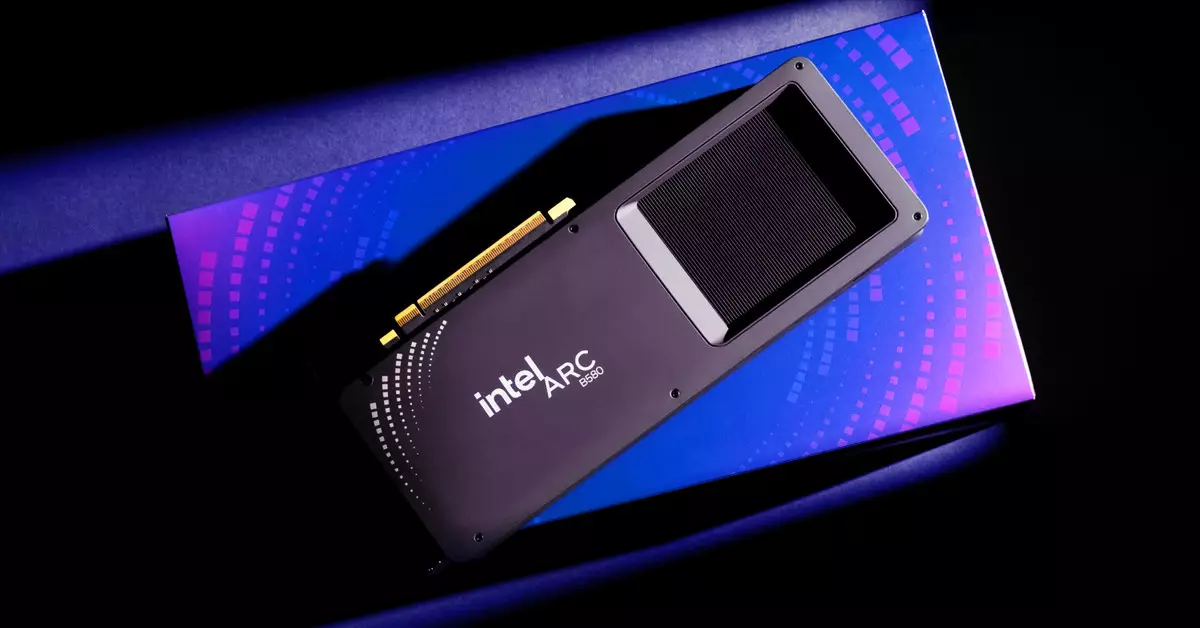Over the past few years, the graphics card market has been tumultuous, marked by inflated prices and a shortage of inventory. However, Intel has embarked on a promising endeavor with the introduction of its latest discrete graphics card, the Arc B580 “Battlemage.” Priced competitively at $250, initial reception indicates that it might be a game changer in an industry often characterized by significant player dominance. While the company has faced its fair share of challenges throughout the year, the Arc B580 has emerged as a product that has quickly captured both attention and sales.
Intel, historically known for its processors, has faced various hurdles in establishing a foothold in the discrete graphics card market. Previous attempts were met with skepticism, particularly due to performance disparities with competitors such as Nvidia and AMD. The Arc B580’s success is notable given that it arrives amidst a background where many of its rivals have underwhelmed consumers. Products like the RTX 4060 and AMD RX 7600 have not raised the bar, leaving a gap that the B580 is adeptly filling.
Reviewers and enthusiasts alike have praised the Arc B580’s performance. Notably, it has been described as a refreshing choice for gamers looking for an affordable option that doesn’t compromise on quality. The positive response can be attributed to several factors, not least of which are its pricing, provision of 12GB of video RAM, and a more stable driver experience compared to earlier Intel graphics offerings.
Despite its early success, the Arc B580’s availability has become a bittersweet topic. With the GPU flying off shelves, many prospective buyers have found themselves unable to find one at its original price point. As reported by Intel, the “demand for Arc B580 graphics cards is high,” hinting at a substantial interest that has led to rapid sellouts at major retailers. This feat represents a significant achievement for Intel, which has struggled to gain traction in a segment dominated by established players.
The situation has led to speculation regarding whether the B580 will sustain its initial buzz. Market analysts indicate that while the card’s performance metrics are laudable, consumers are always apt to shift their interests based on availability and emerging alternatives. As AMD and Nvidia prepare to release their next-generation GPUs, Intel faces the challenge not only of maintaining momentum but also of meeting the supply-side demands of the eager marketplace.
Comparing the Arc B580 to its contemporaries, the recent criticisms directed at the RTX 4060 and AMD RX 7600 may have inadvertently provided a suitably soft landing for Intel’s contestant. Reviewers have hesitated to crown any of the established alternatives as definitive winners, citing mixed performance across various gaming benchmarks. In comparison, the B580 appears to offer enhanced value for money, providing gamers with resources they can work with without undermining their finances.
Particularly for consumers gaming at 1080p, many reviewers noted that while the B580 does not universally outperform the RTX 4060 or RX 7600, it presents a strong case for those aiming for a cost-effective gaming setup. It consistently performs well in most scenarios, making it difficult for tech enthusiasts to overlook this new contender.
As Intel continues to work tirelessly to replenish inventory, the long-term sustainability of the Arc B580 remains a crucial factor in establishing credibility within the GPU market. Whether this success translates into a loyal consumer base will depend on how effectively Intel can manage product output and respond to competitor advancements.
While the immediate outlook for the B580 appears bright, the stakes will only heighten as AMD and Nvidia gear up to release their new GPUs. The upcoming months will be pivotal for Intel. Should it manage to maintain its popularity while providing consistent product availability, it may not only weather the storm of competition but thrive in it.
Regarding Intel’s ambitions, the question remains: can the Arc B580 merely be a bright spot in an otherwise challenging year, or will it serve as a genuine turnaround in Intel’s quest for graphics supremacy? Only time will tell, but for now, it’s undoubtedly a card worth celebrating.

